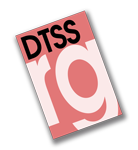El registro de jornada y algunas de sus incógnitas aplicativas. Comentario a la STS de 5 de abril de 2022. (RI §425198)

Time registration systems and some concerns about its implementation. Comment to the STS of april 5, 2022, Rec. 7/2020 -
Rafael Moll Noguera
En las páginas sucesivas, trato de actualizar cuál es el estado de la cuestión en materia de registro de jornada. Después de un breve resumen introductorio de qué nos ha llevado hasta este punto, realizo una síntesis de los principales problemas aplicativos que acompañan a la nueva obligación empresarial de implantar un control de jornada, aportando, por un lado, propuestas que ayuden a resolver estas dudas y, por otro, un análisis de las sentencias de la práctica judicial que se han ido dictando hasta la fecha. Todo ello como telón al estudio detenido que se realiza de la STS de 5 de abril de 2022, en la que por vez primera el Tribunal Supremo se pronuncia sobre el registro de jornada, resolviendo, por un lado, quiénes son los sujetos legitimados y sin oponerse, por otro, a los registros autodeclarativos.
I. Introducción.- II. Incógnitas del marco legal y práctica judicial dictada hasta el momento. 2.1. El juego entre la autonomía colectiva y la individual. 2.2. Los sujetos legitimados para negociar el registro de jornada. 2.3. La flexibilidad en la jornada y su control. en especial, la modificación sustancial de las pausas durante la jornada. 2.4. Las características técnicas del registro y su posible falseamiento.- III. Doctrina del tribunal supremo hasta el momento: STS de 5 de abril de 2022 (rec. 7/2020).- IV. Bibliografía.
In the following pages, I try to update what is the status of the issue regarding the registration of working hours. After a brief introductory summary of what has brought us to this point, I summarize the main application problems regarding the new business obligation to implement time registration systems, providing, on the one hand, proposals that help resolve these doubts, and, on the other, an analysis of the sentences that have been dictated to date. All this as a backdrop to the detailed study carried out on the STS of April 5, 2022, in which for the first time the Supreme Court rules on the registration duty, resolving, on the one hand, who are the legitimate subjects and without oppose, on the other hand, the self-declaring registries.
I. Introduction.- II. Unknowns of the legal framework and judicial practice dictated so far. 2.1. The game between collective and individual autonomy. 2.2. The legitimate subjects to negotiate the registration. 2.3. Daily flexibility and its control. Especially, the substantial modification of breaks during the day. 2.4. The technical characteristics of the registry and its possible falsification.- III. Supreme Court doctrine to date: STS of April 5, 2022 (rec. 7/2020).- IV. Bibliography.
